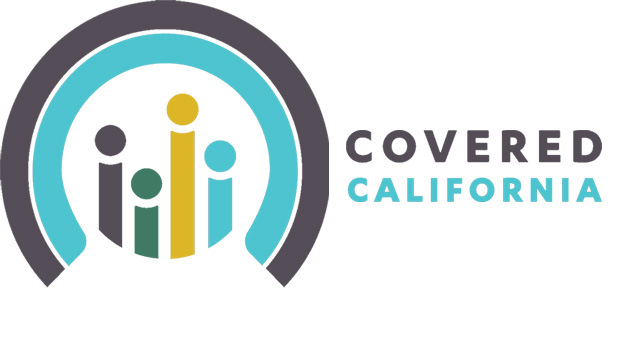
The Affordable Care Act (ACA) has been a polarizing issue at the national level since its signing in 2010, but key Long Beach-area healthcare professionals and local lawmakers are embracing the new law as simply another part of the healthcare landscape.
47th District Congressman Alan Lowenthal, together with State Senator Lou Correa has hosted free community health and healthcare enrollment fairs and the City of Long Beach is putting on a citywide health insurance enrollment event aimed at increasing access to care and promoting health and wellness to residents.
Attendees to these types of events receive free information on the new Covered California health exchange and consultations with certified counselors who can provide enrollment assistance. The information presented is essential to the approximately 25% of Long Beach residents currently living in poverty and the 33% of Long Beach youth in poverty who now have more healthcare options under the ACA.
The ACA expands the number of individuals and families who qualify for Medi-Cal and, through Covered California, many more individuals are eligible for tax subsidies to help purchase health insurance.
“I’m all in on the Affordable Care Act,” Lowenthal told the Post. “We have to make this work because it is massively better than before, and it is the law of the land.”
 For local healthcare professionals like Diana Hendel–CEO of Miller Children’s, Long Beach Memorial, and Community Hospital Long Beach—the changes created by the Affordable Care Act are just another way for her businesses to serve people better.
For local healthcare professionals like Diana Hendel–CEO of Miller Children’s, Long Beach Memorial, and Community Hospital Long Beach—the changes created by the Affordable Care Act are just another way for her businesses to serve people better.
When asked about the new health insurance access that poorer Long Beach residents will have under the ACA, Hendel said she is looking forward to serving Long Beach’s newly insured residents.
“We’ve taken a mission-based ‘serve everyone’ approach to healthcare since even before the ACA passed,” she said, “but more people having health insurance will augment our efforts.”
According to the ACA, any person or family earning an annual income of less than 133% of the federal poverty level (FPL) in the state is now eligible for free Medicaid coverage, including expanded preventive services added by the ACA. And for those earning up to 399% FPL will be eligible for varying amounts of financial assistance based on income.
Hendel said that from the business perspective, this law will level the playing field and increase the competition between the same private insurers who did business in each state before. This in combination with the expansion of Medicaid services will allow much greater health insurance access to low-income residents of California.
“For the last ten years we’ve been trying to move forward on the curve towards preventive medicine in order to keep people from even needing to come [to the hospital]. The ACA will augment our efforts to do that,” Hendel said.
One small but practical way that the ACA is changing the way Hendel’s hospitals do business is the coordination of medical homes for people that previously could not pay for regular medical attention and hence did not have a regular physician or pediatrician.
Booths at an ACA enrollment fair held earlier this month, sponsored by Rep. Alan Lowenthal and State Senator Lou Correa. Photo courtesy of Alan Lowenthal
“Now anyone who comes in through the ER leaves connected with a regular doctor which allows us to check on them after discharge, schedule future appointments and fill prescriptions more easily,” she said.
Another healthcare provider that stands to benefit greatly from the passage of the ACA will be expanding their Long Beach footprint greatly. Molina Healthcare is based in Long Beach and has always served the low-income communities. But with the passage of the ACA and the expansion of insurance access to low-income people, Molina officials say the company will be stepping up their infrastructure and marketing their services to folks with incomes up to 250% FPL.
Molina officials say they expect revenues to double within the next few years as more patients begin to receive healthcare. The company still owns a pair of business office towers in the Long Beach downtown area, and recently rennovated both the Press-Telegram and Meeker-Baker buildings on Pine Ave., where some of the 4000+ new employees the company will need to hire in the coming years can work.
Health services at the Pacific Hospital in the Wrigley neighborhood will also be expanded through a coordinated effort between Molina and the College Hospital company.
{loadposition latestlife}
“College Hospital will use half of the beds for psychiatric purposes, and we will use the other half to expand our delivery of healthcare services in the area,” said Mario Molina, CEO of Molina Healthcare. “People who are not eligible for Medicaid and otherwise do not have affordable access to health insurance will now have access to our network. This is a great opportunity for people who until now have been unable to get coverage.”
Overall, the poor and working class of Long Beach stand to gain a great deal from the Affordable Care Act, and the service providers in this city are prepared to embrace the law as a positive change.
“Long Beach becomes a healthier city with each new person who signs up at Cover Long Beach,” Mayor Bob Foster said in a statement. “This is a great opportunity for people to ask their questions about the new health mandates and make a more informed decision on their own health insurance.”
Cover Long Beach will take place Saturday, November 16 from 10AM-3PM at six locations throughout the City of Long Beach. For a list of locations and languages available at each, visit longbeach.gov/health. To enroll in health insurance on your own, please call Covered California health benefit exchange at (800) 300-1506 or visit their website at coveredca.com.
Read more:

